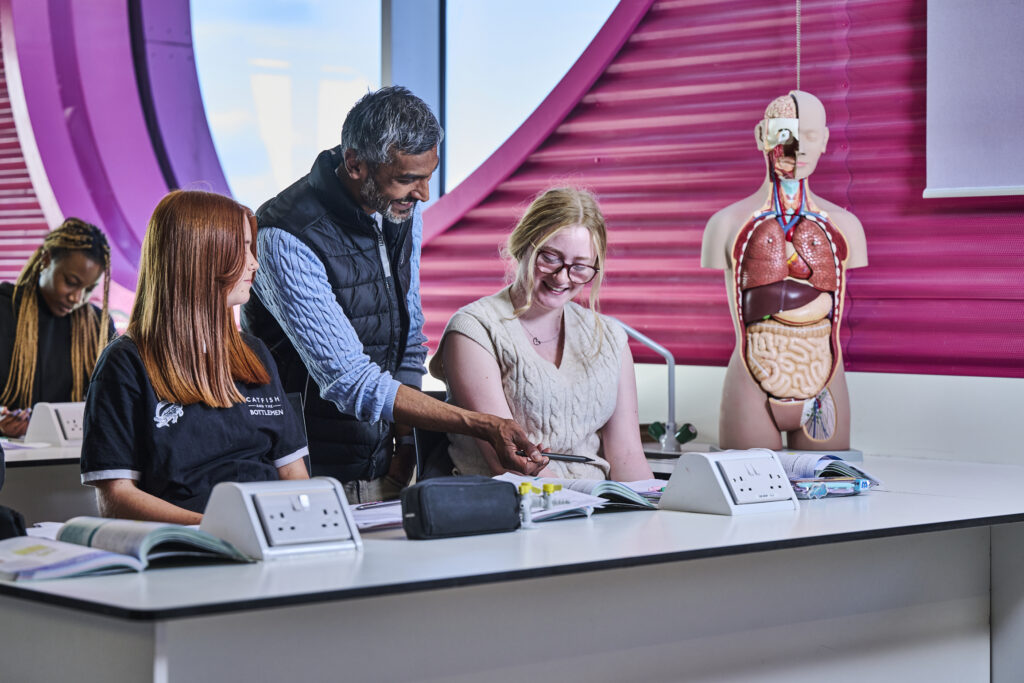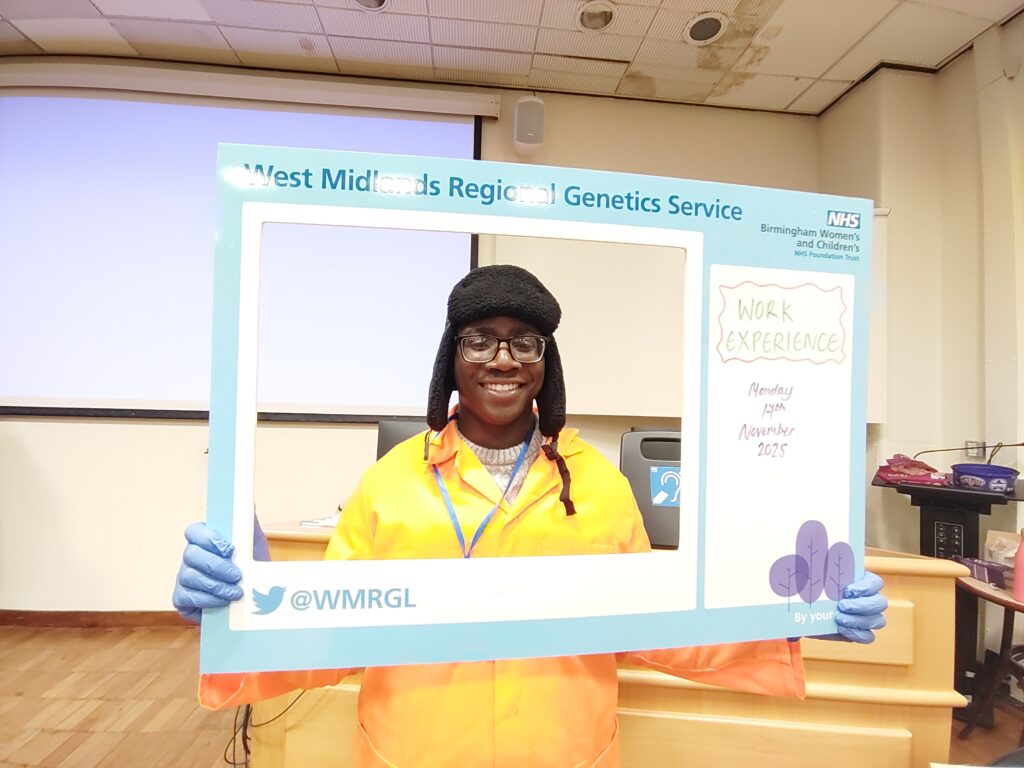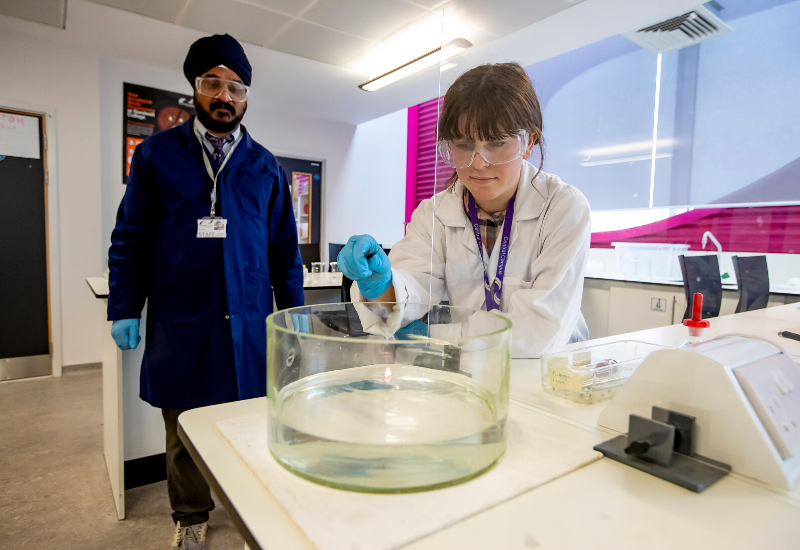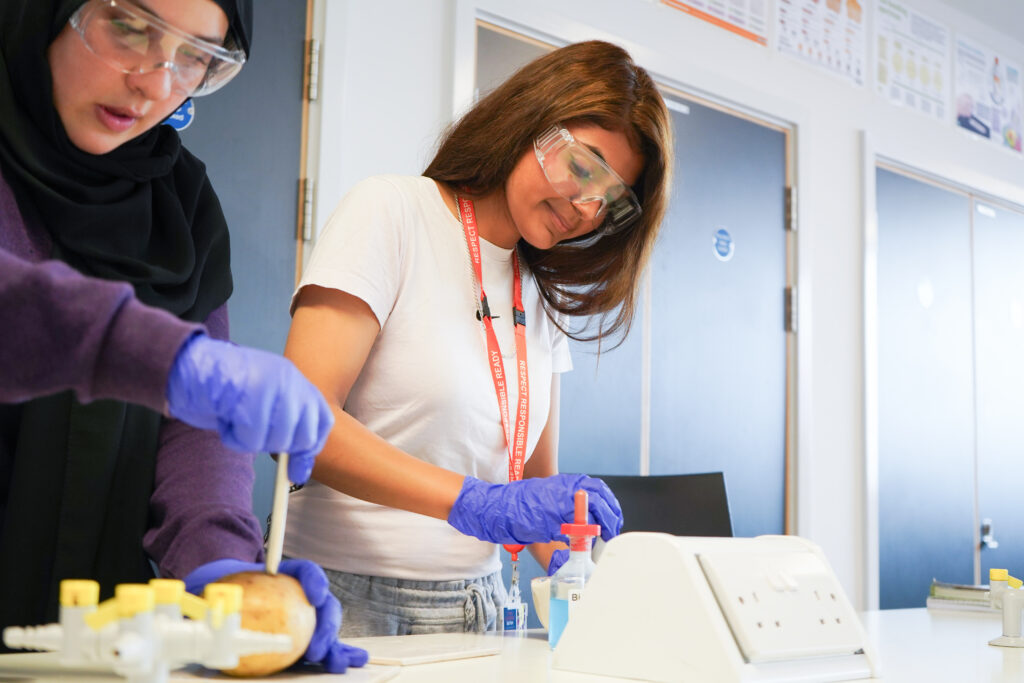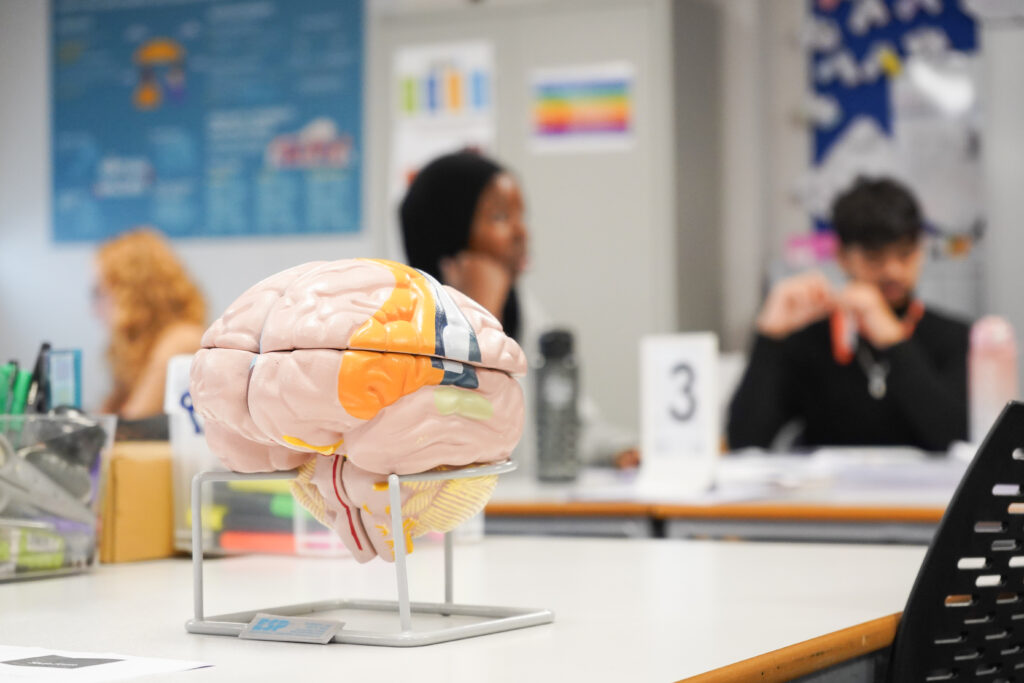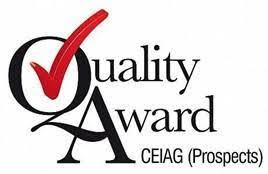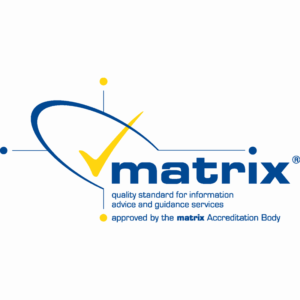Applied Science helps you develop confidence in skills relevant to the sector, preparing you for university courses requiring independent study. This particular structure helps you gain both theoretical knowledge and practical skills, applicable in various contexts. The Extended Certificate is equivalent to an A Level.
In the examined units, you’ll cover key concepts in Applied Science. In non-examined units, you’ll apply your knowledge through practical assignments.
You will be:
- researching topics, documenting sources, interpreting findings, and presenting evidence
- presenting information, including managing time and identifying aims, purposes, resources, and methods
- solving problems by matching and analysing data
Content Overview
The qualification includes three mandatory units and four optional units.
Mandatory units:
Fundamentals of Science – assessed by exam
In this unit you will learn about the key topics that are important in Biology, Chemistry and Physics and you will study two key practicals for each of those components to be assessed as part of Section D of the exam.
Topics include:
Section A (Biology)
– Topic Area 1 Cell structure and microscopy
– Topic Area 2 Bioenergetics
– Topic Area 3 Structure and function of biological molecules
– Topic Area 4 Biodiversity and ecosystems
Section B (Chemistry)
– Topic Area 1 Atomic Structure and the Periodic Table
– Topic Area 2 Quantitative Chemistry
– Topic Area 3 Structure and Bonding
– Topic Area 4 Rates of reactions and enthalpy changes
Section C (Physics)
– Topic Area 1 Electricity
– Topic Area 2 Motion
– Topic Area 3 Medical physics
Science in Society – assessed by exam
In this unit you will learn about the skills scientists use and the roles they perform in an international scientific community. You will examine different types of scientific data and learn how scientists use them to draw conclusions that can contribute to scientific advancement.
Topics include:
– Topic Area 1 What scientists do
– Topic Area 2 Handling scientific data
– Topic Area 3 Scientific developments
– Topic Area 4 Communicating science
Investigating Science – assessed by assignment
In this unit you will learn about the role of a research scientist in industry by learning how to conduct your own scientific investigation. You will develop the skills to research, plan and risk assess your investigation before safely undertaking the practical tasks.
Topics include:
– Topic Area 1 Planning a scientific investigation
– Topic Area 2 Performing a scientific investigation
– Topic Area 3 Analysing and communicating results
– Topic Area 4 Evaluating a scientific investigation
Optional units – you must take two of these units:
Analytical Techniques in Chemistry – assessed by assignment
In this unit you will learn how to plan and perform practical investigations to separate substances and purify them.
Topics include:
– Topic Area 1: Techniques to categorise and separate chemical substances
– Topic Area 2: Quantitative and qualitative analytical techniques to quantify and identify substances
– Topic Area 3: The principles of spectroscopic techniques and interpreting spectra for chemical substances
Environmental Studies – assessed by assignment
In this unit, you will learn to use primary and secondary data to study ecosystems. You will develop the skills to carry out in situ fieldwork investigations to survey an area using different sampling techniques.
Topics include:
– Topic Area 1: Ecosystems and biodiversity
– Topic Area 2: Impact of human activity and natural events
– Topic Area 3: Waste management
– Topic Area 4: Environmental management and conservation
– Topic Area 5: Fieldwork
Forensic Biology – assessed by assignment
In this unit you will learn how to perform investigations of the macro- and ultrastructure of cells and tissues from fresh and prepared material, using optical microscope techniques and electron micrographs.
Topics include:
– Topic Area 1: Forensic biology disciplines and evidence
– Topic Area 2: Cells, Tissues and Organs in Forensic Biology
– Topic Area 3: Investigation and Evidence Collection
– Topic Area 4: Analytical Techniques and Evidence Interpretation
Medical Physics – assessed by assignment
In this unit you will learn about the different diagnosis techniques and therapies used in medicine.
Topics include:
– Topic Area 1: Application of non-ionising diagnosis techniques
– Topic Area 2: Application of ionising diagnosis techniques
– Topic Area 3: Application of ionising therapy techniques
– Topic Area 4: Application of non-ionising therapy techniques
– Topic Area 5: Planning for diagnosis and therapy

